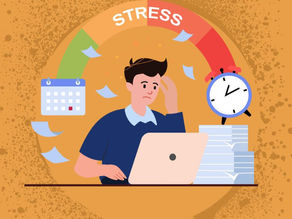
Do you ever feel like your stomach is tied in knots? That you can’t stop fretting or worrying? That you want to hide away from the world and never come out?
It may not seem like it, but these feelings are very normal and very human. It’s our body’s own personal response to stress and it can cause us a multitude of unpleasant sensations, both physical and emotional.
Some anxiety is normal
In life the occasional bout of anxiety is to be expected. After all, we all get worried about some things – it might be a big job interview, public speaking, going to the dentist, meeting new people or lots of other common worries. But anxiety can become far bigger than that. Anxiety can become a very real and debilitating mental health problem when it impacts your ability to live your life as fully as you want to.
What are the signs of anxiety?
If you’re feeling anxious, you might experience one or more of the following:
-
Heart palpitations (fast-beating, fluttering or pounding heart)
-
Trembling or shaking
-
Panic attacks
-
Breathing rapidly (hyperventilation)
-
Sweating
-
Racing thoughts
-
Stomach issues (pain, feeling sick or running to the loo)
-
Trouble concentrating
-
Sleep problems
-
Withdrawal
-
Unable to relax
-
Feeling restless
-
Constant worrying
-
Irritability
What causes anxiety?
Stress is often one of the main causes of anxiety. This could be how much stress you’re under now, or what you’ve experienced in the past.
Some other triggers for anxiety may include:
Financial worries
Being abused, bullied or harassed
Emotional or physical abuse
Loneliness
Working long hours or burning out
Being unemployed
Uncertainty of world events
Drug use
Alcohol use
Relationship difficulties
Side effects of medication
Homelessness
Coping with anxiety
If anxiety is getting in the way of your life, it’s important to find treatment and tools to help you cope. It’s also important to identify and manage your own personal triggers. Your GP, or a mental health professional, are the best people to guide you and will talk you through the best treatment options available.
When it comes to anxiety, we believe knowledge is power. The more you know, the more equipped you’ll become to manage your symptoms. There are lots of different ways you can manage your anxiety. Here are a few things that might help:
Therapy
Exercise
Medication
Support groups
Creativity
Breathing exercises
Mindfulness
Meditation
Changes in diet
Tools and resources to help with anxiety
UpbeatLiverpool
PSS anxiety management booklet
Paddy’s relaxation video, etc
YouTube videos































